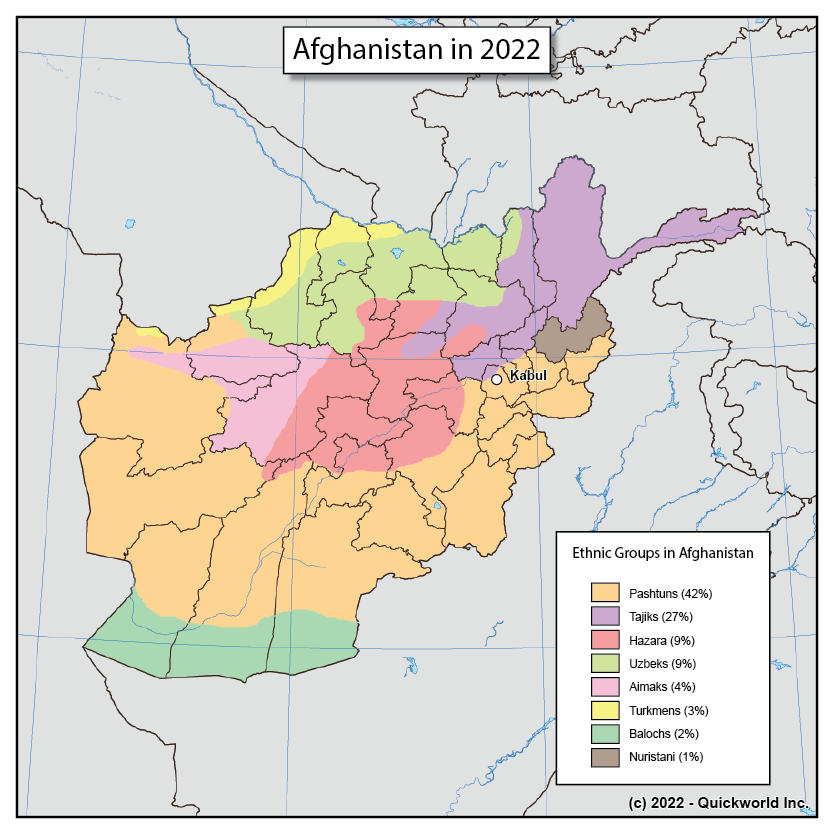Afghanistan is a country much used to warfare, a consequence of its remoteness, closeness to strategic regions, and ethnic diversity.
A sovereign nation since the 18th Century, Afghanistan was interesting to both Russia and Great Britain in their "Great Game" of domination in the far East. After several wars, Britain settled the matter with the Afghan government, establishing a border known as the "Durant Line", which left about half the Afghani within British India. Russia advanced from the North to the edge of the Pamir Mountain, annexing half of the Tajik lands.
This left Afghanistan as a patchwork of ethnic groups, most of whom (Uzbeks, Tajiks, Pashtuns, Turkmens and Balochis) extended well beyond its borders. The fall of the monarchy in 1973 led to unrest, and a Soviet-aligned government called the USSR for help. The invasion by the Soviet Army in 1979 led to guerilla warfare, a condition that has remained true well into the 21st Century. The Soviets were pushed back in 1989, and the Taliban, an Islamist group, took control of the country in 1996. In 2001, the US Army intervened because the Taliban were sheltering Al Qaida, which had just launched the most devastating terrorist attack on US soil. A major coalition took control of the country and tried to lead the Afghanis towards democratic institutions, but the departure of US military advisors in 2021 was quickly followed by the return of the Taliban. Support for the regime varies greatly among ethnic groups.
More on Afghanistan
The Afghan Wars


